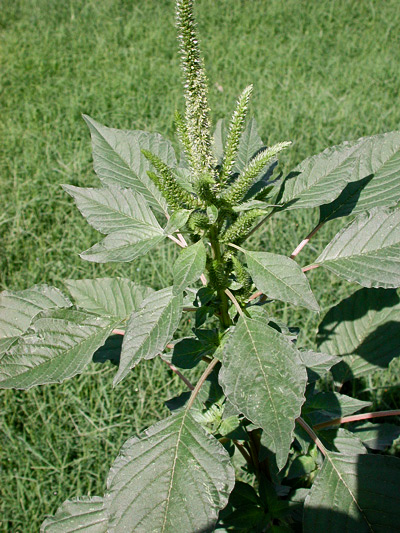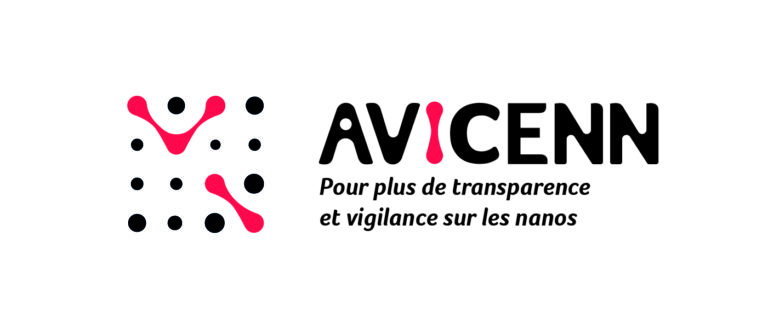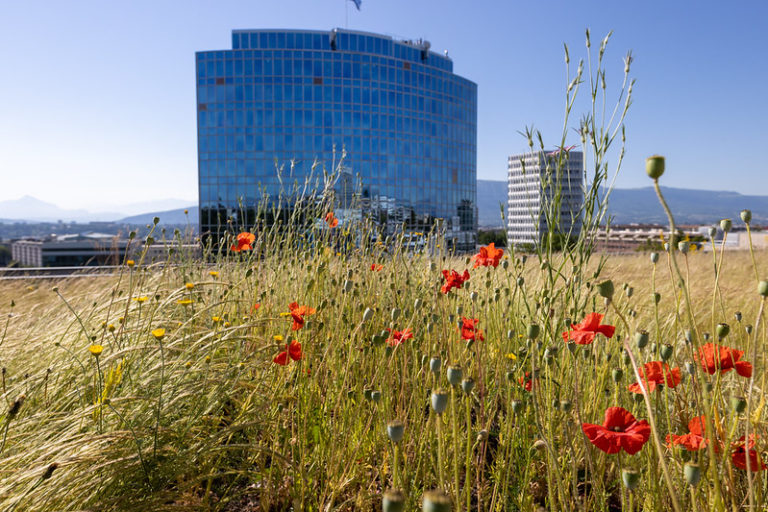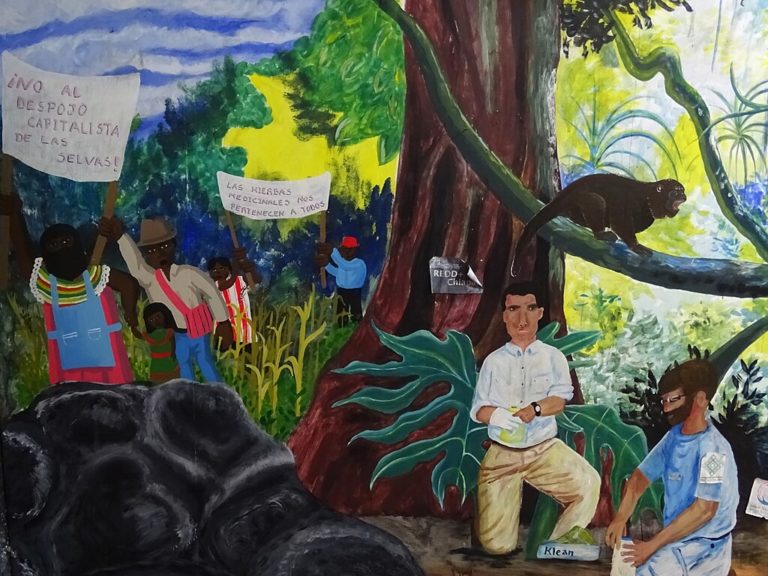Actualités
Veille juridique Inf’OGM du 16 au 23 janvier 2023
FRANCE
•Ministère de l’Agriculture et de la Souveraineté alimentaire
Plants de colza génétiquement modifié : publication de l’avis de l’Anses à la suite de la saisie par le ministère de l’Agriculture et de la Souveraineté alimentaire
Communiqué de presse du 20 janvier 2023 :
« A la suite de l’identification fin février 2022 de plants de colza génétiquement modifié à proximité d’une entreprise dans le secteur de Rouen, le ministère de l’Agriculture et de la Souveraineté alimentaire a engagé immédiatement des actions : prélèvements, inspections auprès de l’usine et mesures de destruction pour éviter tout risque de dissémination de pollen et de graines.
Des suivis réguliers sont par ailleurs réalisés à la demande de la Direction générale de l’Alimentation du ministère pour s’assurer de l’absence de repousse de colza génétiquement modifié.
Le ministère de l’Agriculture et de la Souveraineté alimentaire a saisi l’Anses en mai 2022 sur les mesures de gestion visant à éradiquer les plants de colza OGM. Ce vendredi 20 janvier 2023, l’Anses a publié son avis et formule un ensemble de recommandations pour éradiquer les plants de colza génétiquement modifié et plus globalement éviter la dissémination accidentelle d’OGM dans l’environnement. Plusieurs actions sont recommandées telles que le renforcement des plans de surveillance, la destructions complètes des plants observés et de leurs racines, ainsi qu’une surveillance très régulière de l’ensemble de la zone concernée.
Un examen approfondi de cet avis va être effectué par la direction générale de l’Alimentation.
Des inspections d’autres usines de trituration de colza qui importent du colza OGM de pays tiers et de leurs alentours ont été réalisées en 2022 ou sont prévues pour 2023. Les résultats permettront d’objectiver le nouveau signalement de l’association Inf’OGM et de prendre les mesures de gestion nécessaires le cas échéant. »
Lien vers le communiqué de presse ici.
Lien vers l’extrait de l’avis de l’Anses ici.
Lien vers article Inf’OGM ici.
UNION EUROPÉENNE
•Commission européenne
Commerce et climat : l’UE et les pays partenaires lancent la « Coalition des ministres du commerce sur le climat »
Communiqué de presse du 19 janvier 2023 :
« Today, the European Commission, EU Member States, and 26 partners countries will launch “The Coalition of Trade Ministers on Climate”, the first Ministerial-level global forum dedicated to trade and climate and sustainable development issues. The Coalition will foster global action to promote trade policies that can help address climate change through local and global initiatives.
The Coalition aims to build partnerships between trade and climate communities to identify the ways in which trade policy can contribute to addressing climate change. It will promote trade and investment in goods, services and technologies that help mitigate and adapt to climate change.
A prominent element of the Coalition’s agenda is to identify ways in which trade policies can support the most vulnerable developing and least developed countries that face the greatest risks from climate change.
This high-level political dialogue will see the participation of Trade Ministers from different regions and income levels. Civil society, business, international organisations and climate and finance communities will participate in the Coalition’s work.
The Coalition is open to all interested countries, and so far consists of more than 50 ministers from 27 jurisdictions. The four co-leads are Ecuador, the EU, Kenya, and New Zealand. The other participants are : Angola, Australia, Barbados, Cabo Verde, Canada, Colombia, Costa Rica, Iceland, Gambia, Japan (Foreign Affairs & Trade), Republic of Korea, Maldives, Mozambique, Norway, Philippines, Rwanda, Zambia, Singapore, Switzerland, Ukraine, United Kingdom, United States and Vanuatu.
The Coalition will provide political guidance and identify trade-related strategies to adapt to changing climate conditions and extreme weather, for instance through the production, diffusion, accessibility and uptake of climate-friendly technologies. It will focus on finding trade-related solutions to the climate crisis in line with the United Nations Framework Convention on Climate Change (UNFCCC), the Paris Agreement, and the Sustainable Development Goals, whilst supporting ongoing efforts in this area in the World Trade Organization (WTO).
Next Steps
The next Ministerial meeting will take place in the margins of the next WTO Ministerial Conference planned in early 2024.
Background
The Climate Coalition was officially launched during the World Economic Forum Annual Meeting in Davos on 19 January 2022. It aims to identify the ways trade and trade policy can have a positive contribution to the current climate crisis. It will be a forum of high-level political dialogue to foster international cooperation on climate, trade and sustainable development. »
Lien ici.
•Parlement européen
Nouvelle question parlementaire : la production de protéagineux dans l’UE
Question E-000043/2023 de Tom Vandenkendelaere (PPE) :
« As part of the ‘Farm to Fork’ strategy, the Commission has undertaken to examine EU rules in order to reduce dependence on critical feed materials, including soya. It is to do that by focusing on EU-grown plant proteins and on alternative feed materials such as insects, marine feed stocks (e.g. algae) and bioeconomy by-products (e.g. fish waste). Furthermore, through research and innovation the Commission will be helping to increase the availability and number of sources of alternative proteins such as plant, microbial, marine and insect-based proteins and meat substitutes.
1. What steps have already been taken in this context and what results can the Commission present ?
2. How will the Commission step up its efforts regarding plant and alternative proteins in its next protein strategy ? »
Lien ici.
Nouvelle question parlementaire : réduire la dépendance à l’égard des importations de protéines
Question E-000042/2023 de Tom Vandenkendelaere (PPE) :
« The Commission Staff Working Document on drivers of food security (SWD (2023) 4 final) states that the high level of dependence on imported soya and maize for animal feed makes EU livestock farmers vulnerable to external conditions. The Commission also states that there is a strong link between the EU’s dependence on imported feed and food security in the EU and globally. In its communication of 23 March 2022 on food security, the Commission furthermore stated that reducing dependence on feed imports should be part of the wider transformation of the EU food system, including a shift towards more plant-based diets. The Flemish protein strategy [1] also recognises the need for more European sustainably produced plant proteins and the need to reduce import dependence on third countries.
1 .Is the goal of reducing dependence on protein imports from third countries part of the EU-wide protein strategy that should be in place in 2023 ?
2. What specific policy plans will the Commission put forward to reduce that dependence ?
3. How will the Commission increase the share of European sustainably produced plant proteins ? »
Lien ici.
Réponse à une question parlementaire : utilisation durable des produits phytopharmaceutiques
Question E-003665/2022 de Roman Haider (ID) :
« The Commission’s proposal on plant protection products apparently includes a blanket reduction target of 50 % for plant protection products by 2030 and an almost complete ban on plant protection products, whether conventional or biological, in sensitive areas such as Natura 2000 sites. Rules are proposed to reduce the use and risks of plant protection products in the Union, in line with the objective of a fair, healthy and environmentally friendly food system set out in the Farm to Fork Strategy, at the heart of the Green Deal. The sustainable use of pesticides aims to reduce the risks and impacts of pesticide use on human health and the environment. Strict rules are laid down to ensure that pest control is environmentally friendly through a comprehensive implementation framework under which all farmers are supposed to apply ‘integrated pest management’.
1. What specific factors does the Commission consider to be decisive in making recommendations to set higher targets in specific cases ?
2.Is a complete ban on plant protection products, whether conventional or biological, planned in sensitive areas such as Natura 2000 sites or in general ?
3. Is the Commission aware of the fact that a blanket 50 % reduction target for plant protection products, let alone a total ban on plant protection products, would mean the end for many farmers and would lead to more and more farm closures in the EU thereby promoting dependence on the world market and thus environmentally harmful imports ? »
Réponse de Mme Kyriakides au nom de la Commission européenne :
« The reduction targets are to be determined using prior progress and weighted intensity of use. Minimum and maximum values would ensure all Member States make a meaningful contribution without being overburdened.
The Commission would consider targets set by Member States and any factors explaining the lowering of those targets before recommending an increase in ambition. The Commission might also consider the overall average ambition of all Member State targets.
The Commission proposal provides for a ban on the use of all pesticides in sensitive areas and within 3 meters of those areas, with limited derogations.
The Commission has submitted a non-paper that offers options for consideration by Member States on the definition and scope of provisions on sensitive areas.
The options include allowing low risk and biocontrol pesticides in all sensitive areas. For agricultural use within sensitive areas, in addition to low risk and biocontrol products, all approved pesticides used in organics and all approved pesticides used in conventional agriculture except the more hazardous ones would be allowed.
The Commission has neither proposed a blanket 50% reduction target for pesticides , nor a total ban regarding their use. These targets will be adapted to Member States’ individual situations and are to be achieved at national and EU levels.
One target relates to the use and risk of pesticides, with more hazardous pesticides carrying a higher risk and hazard weighting. A reduction in use of more hazardous pesticides will contribute to achieving this target, with a 14% reduction already achieved at EU level by 2020.
The second target, achieved at 26% at EU level according to the latest data, relates specifically to reducing the use of more hazardous pesticides. »
Lien ici.















